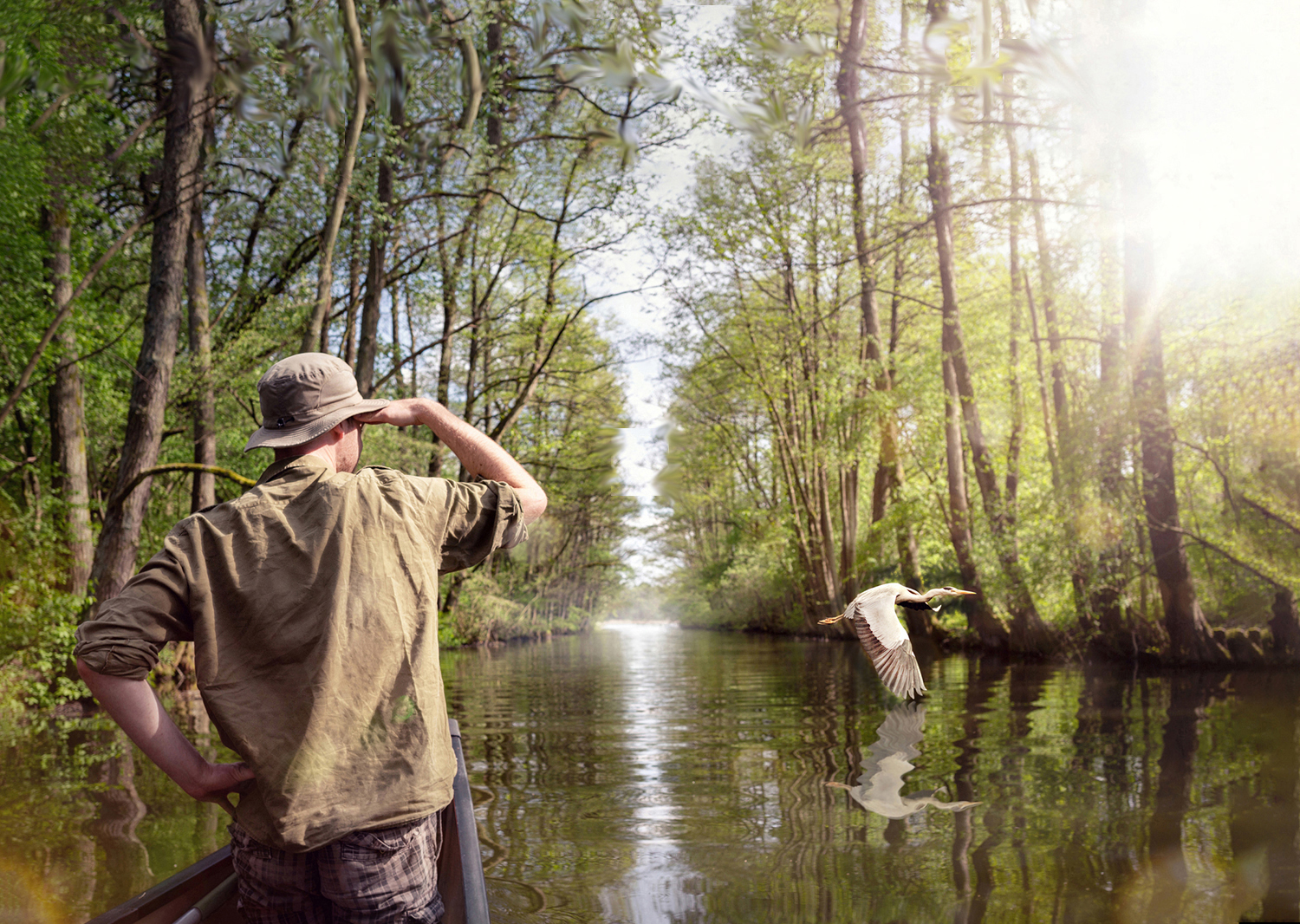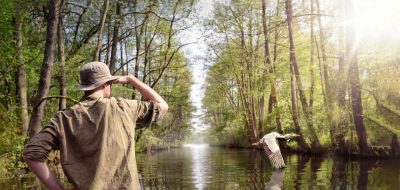Birds zip and zoom around us every day. But like many RVers, I hardly gave winged creatures a second thought unless a hummingbird buzzed past my head. All that changed the day I accidentally camped at one of the best winter birding destinations for RVers in the southwest.
Birds Bring Natural Stress Relief
It was getting late while driving to Tucson and we needed a place to stop for the night. An online directory pointed me to a nearby wildlife refuge near Willcox, where overnight camping is allowed. Easy to access with wide-open spaces, we pulled in alongside a stunning little lake. Little did we know that the daily display of Sandhill Cranes in flight was about to begin. Moments after logging onto our computers to manage an onslaught of incoming emails, an interesting faraway sound pulled us away from our screens.
As the deep orange Arizona sun sank low on the horizon, a loud chorus of honks and squawks slowly drifted toward us. We opened the trailer door just as thousands of giant cranes swooped overhead, traveling westward to their nightly destination. With broad wingspans averaging 78 inches across, they elegantly breezed along and dazzled us with their graceful V-shaped flight patterns. The Sandhill Cranes put on a show like no other, making us forget about the long, exhausting drive we had just endured. It was a free show that provided instant stress relief, connecting us to nature and the whole reason why we full-time RV in the first place.
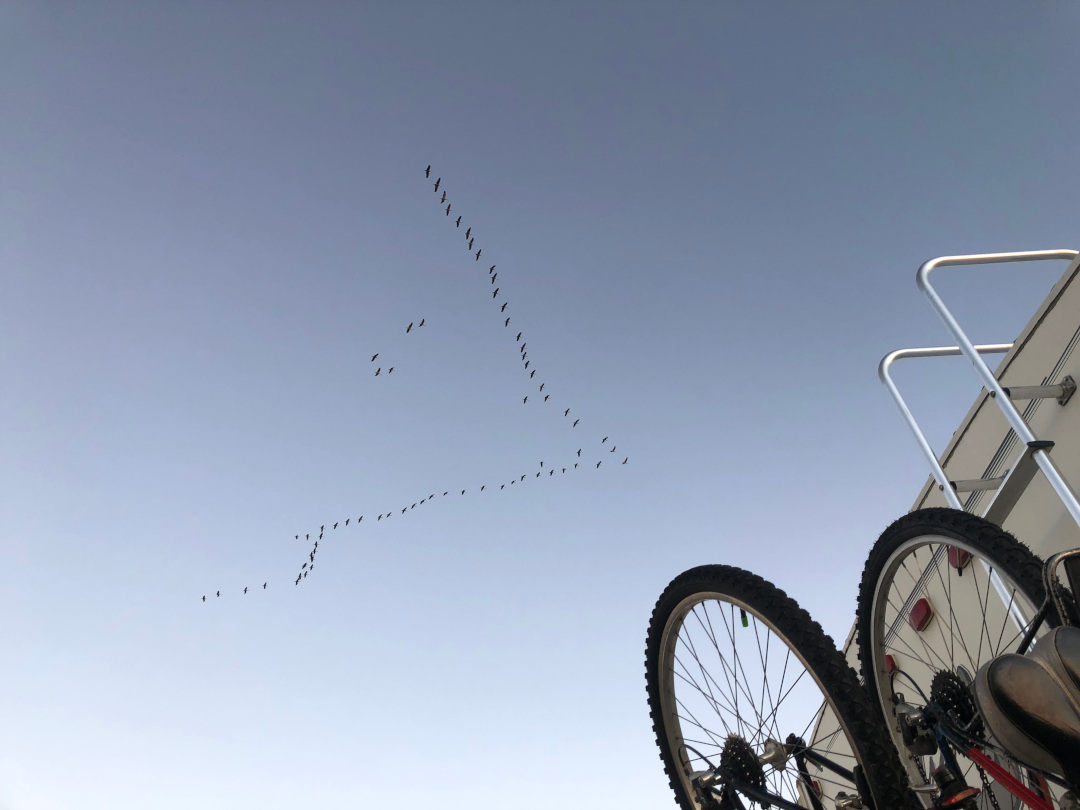
Sandhill cranes flying in V formation near Wilcox, Arizona. Photo: Rene Agredano.
Relax at the Best Winter Birdwatching Destinations
I had no idea that birdwatching can be a free, easy way to relieve stress. Armed with a great pair of birdwatching binoculars and a wide-brimmed sun hat, anyone can let go of their worries and get closer to nature through birdwatching.
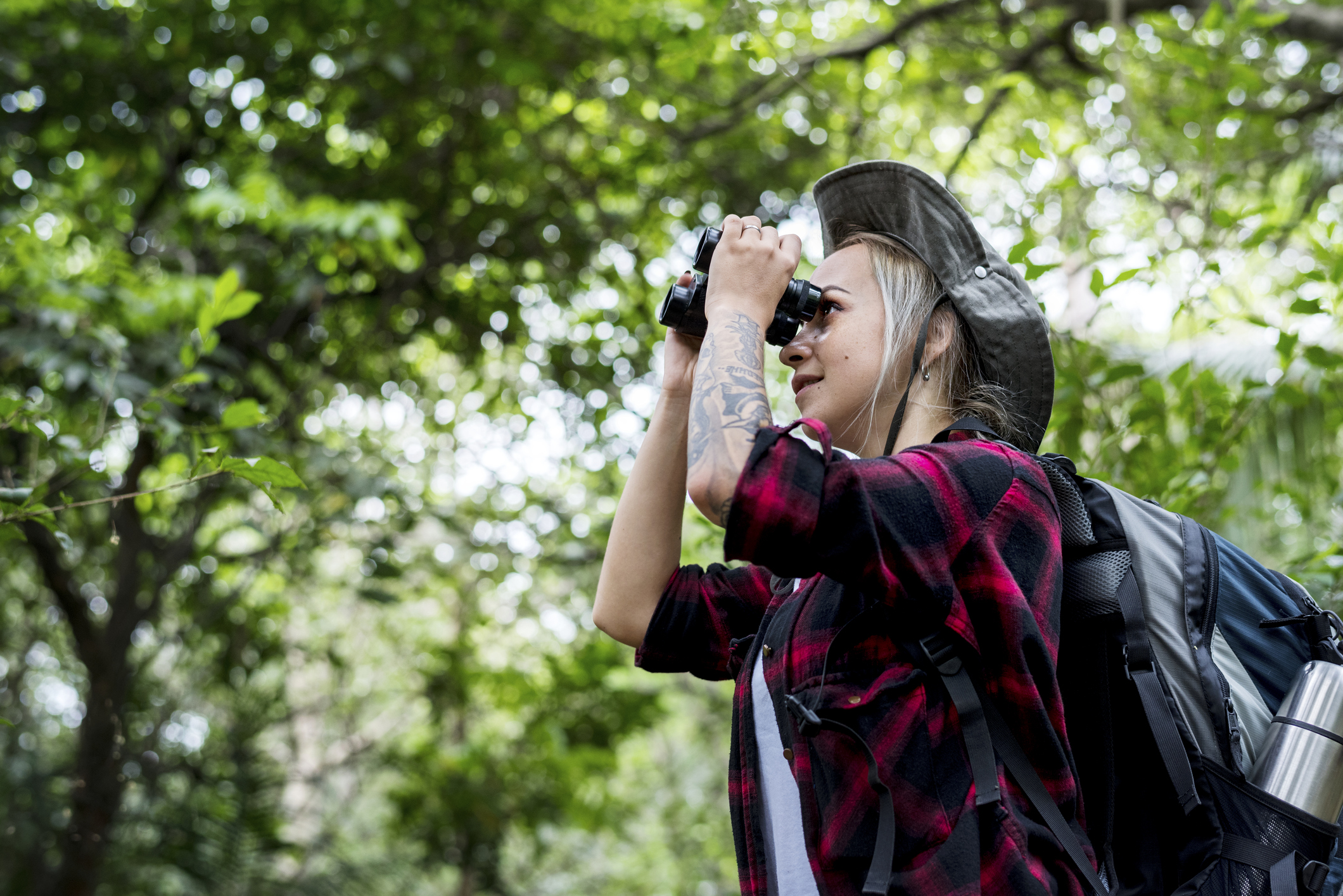
Getty Images
RVing to birding hotspots is easy, too. Plenty of great summer and winter birding destinations are open to RVers, and many are free. Wildlife refuges often allow short-term overnight RV parking, with spaces built to accommodate even the largest motor home or travel trailer. A few of the best places to watch them include:
Arizona: Tombstone
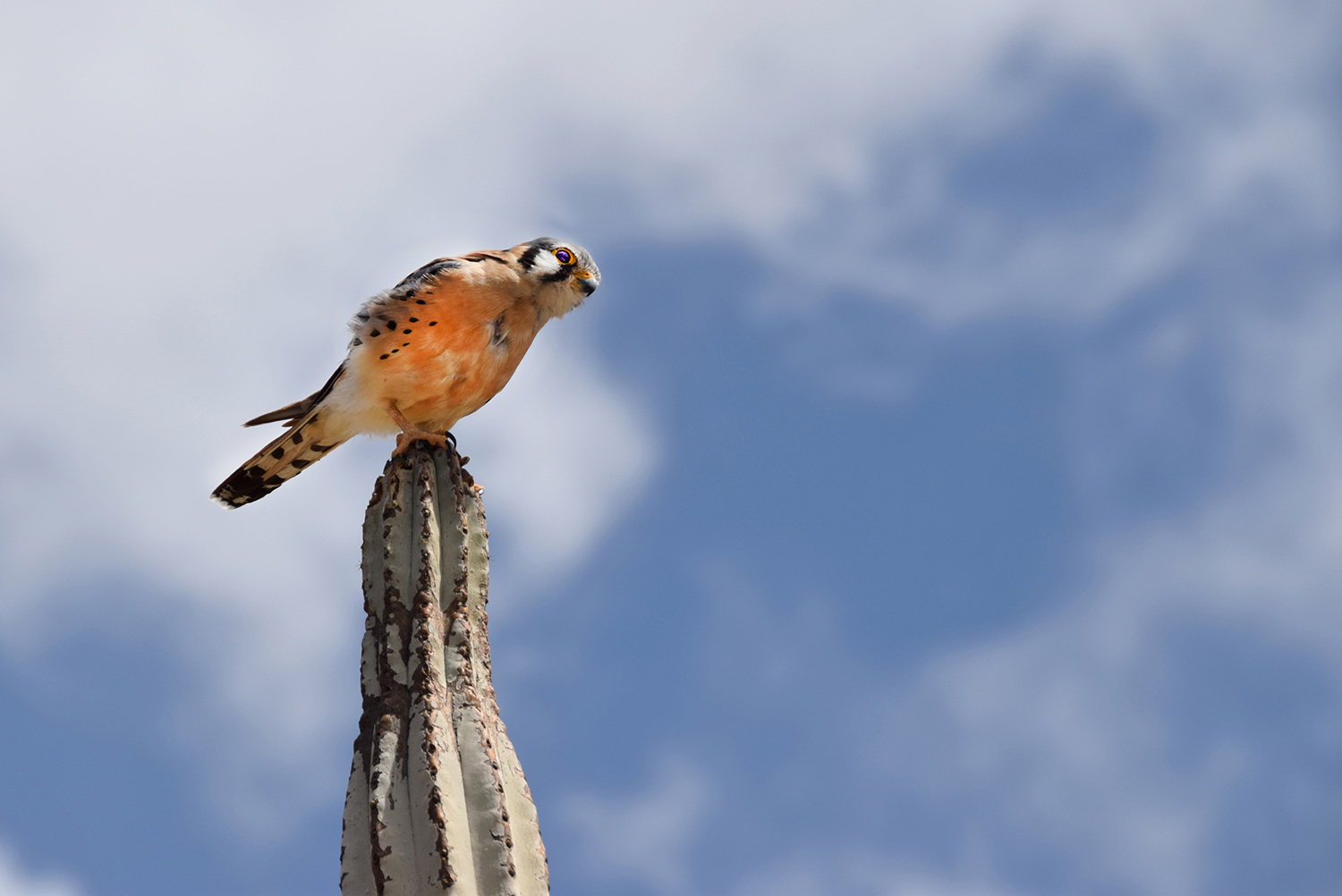
American Kestrel in Arizona. Photo: Getty Images
You don’t need to wander too far off Interstate 10 to decompress with thousands of impressive little creatures in flight. Set up camp at Tombstone RV Park for full hookups and easy access to restaurants and Wild West entertainment. Then pack a picnic lunch and head to the tiny hamlet of Herford, where the San Pedro Riparian National Conservation Area awaits. This national conservation area is one of the four major north-south migratory bird corridors of the southwestern United States. According to the Audubon Society, during the height of the migration season, you’re likely to find up to 100 birds per hectare. It’s not uncommon to spot Osprey, Yellow Warblers and Gray Flycatchers coexisting side by side in the desert riparian ecosystem.
Nevada: The Pahranagat Valley

Panoramic view of the Pahranagat Valley. Photo: Rene Agredano
When the Vegas party scene gets old, head north to Pahranag at National Wildlife Refuge for another kind of wildlife experience. This beautiful, watery surprise is nestled just a short drive from the Strip in one of Nevada’s driest desert landscapes. The 5,382-acre refuge spans five distinct habitats located in a marshy, riparian preserve. Teeming with birds ranging from bald eagles to the endangered southwestern willow flycatcher, it’s a treat to hike and birdwatch in a variety of terrain that feels so different from anywhere in the parched landscape that surrounds it. Fifteen first-come-first-served free campsites are available. But if you’re into more comfortable surroundings, Picket’s RV Park in nearby Alamo has everything you need from full hookups to groceries and supplies within walking distance.
New Jersey: Cape May
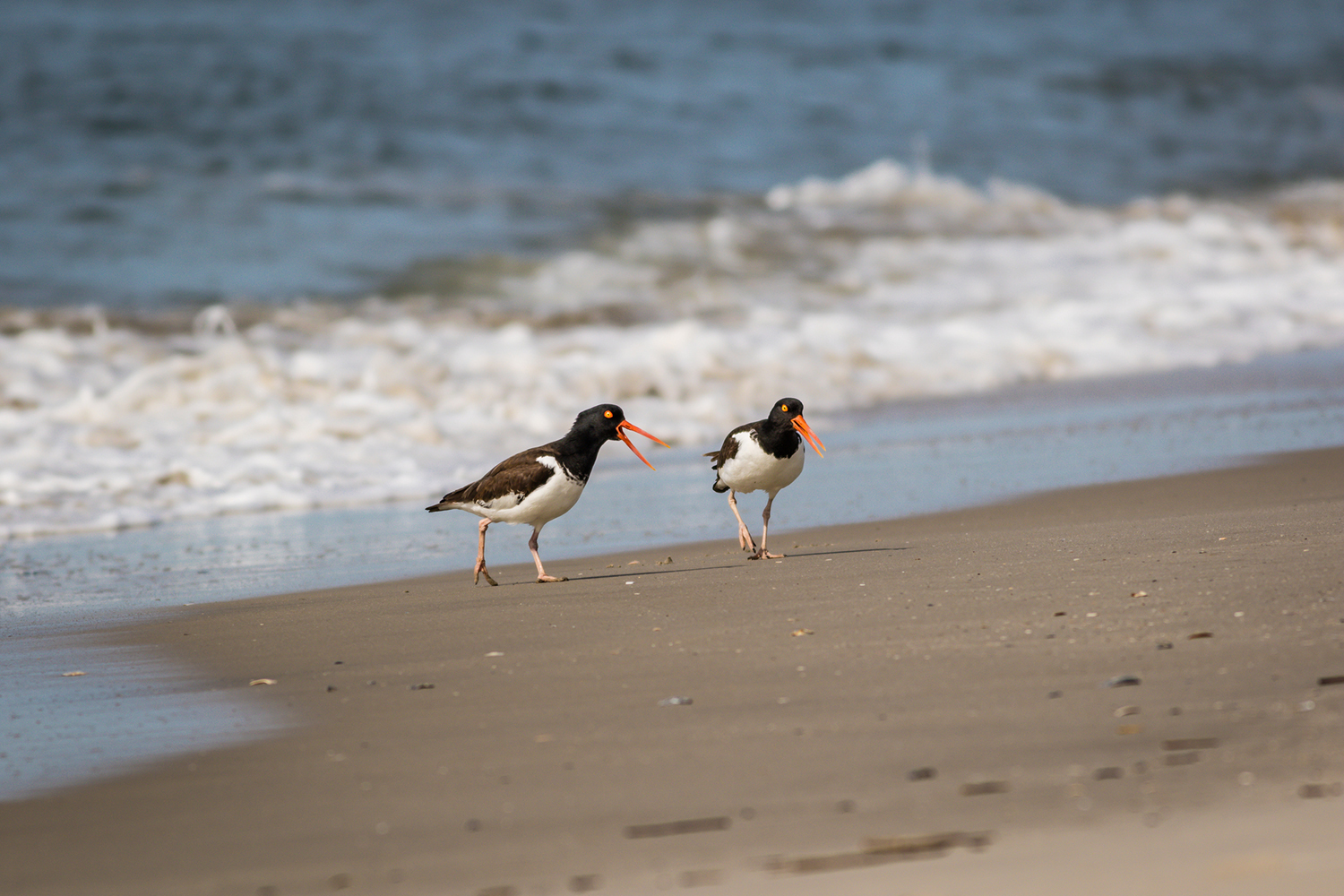
American Oystercatachers in Cape May, New Jersey. Photo: Getty Images
New Jersey’s southernmost point is home to Cape May, one of the best birdwatching perches in North America. The Cape May Bird Observatory gives visitors a fantastic vantage point for hawks, ospreys, peregrine falcons, merlins and many more who fly overhead during their migrations. The observatory puts on education programs and birdwatching events for folks eager to learn more about flyers that visit this region. During winter, visitors will catch sight of eagles, owls and ducks. After a day of watching for birds, take the ferry across Delaware Bay and stay at Massey’s Landing in Millsboro.
New Mexico: Bosque Del Apache National Wildlife Refuge
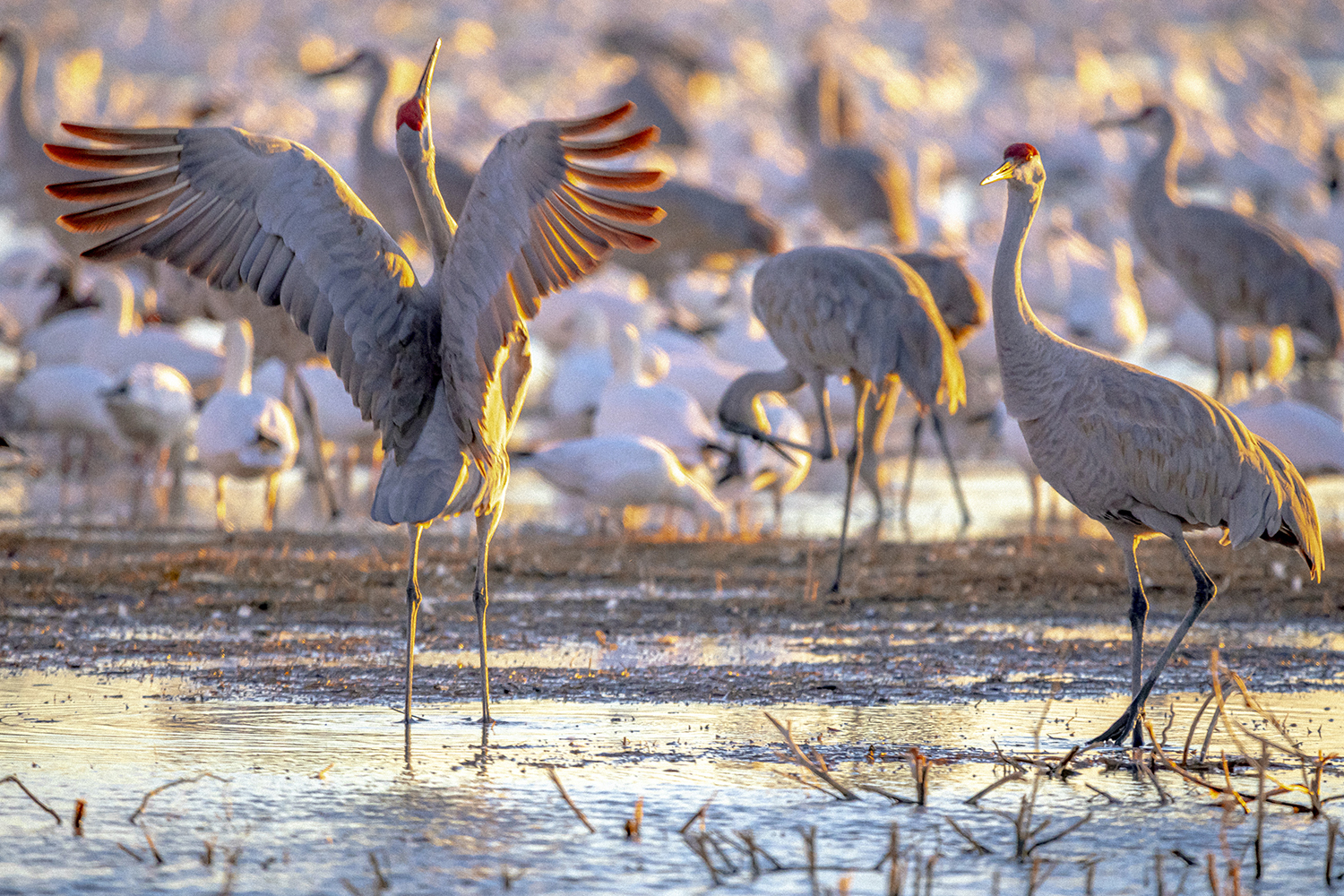
Sandhill cranes and snow geese greet the sunrise at Bosque del Apache Nature Preserve in New Mexico. Getty Images
You can’t miss this world-famous birding destination if you’re RVing south of Albuquerque on Interstate 25. Located just south of Socorro, the 57,331-acre Bosque del Apache refuge is a busy stopover site for migrating waterfowl in search of warmer homes along the Rio Grande. Each winter, tens of thousands of cranes, geese and ducks call Bosque home. Park your rig at the big-rig-friendly Kiva RV Park and Horse Motel, and you can, too. It’s the closest full-hookup RV park near Bosque del Apache, where you can bike and hike through the wetlands. Get up close and de-stress alongside busy birds large and small, from great horned owls to stunning vermillion flycatchers. Hundreds of other species thrive here, too, including badgers, black-tailed jackrabbits and banded rock rattlesnakes.
Texas: Quinta Mazatlan World Birding Center and the McAllen Nature Center
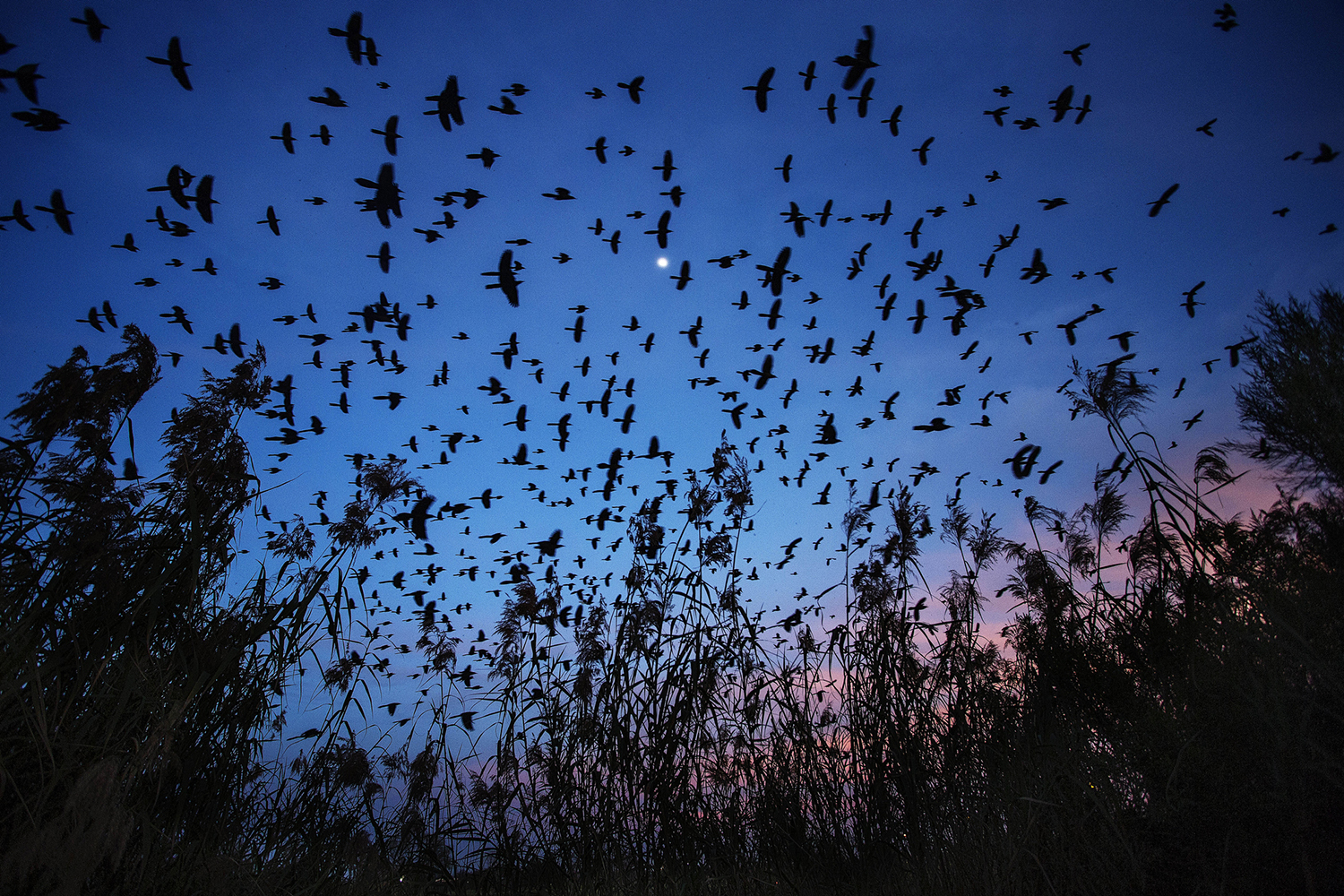
Birds flying over the Rio Grande River in Texas. Getty Images
Birdwatchers from around the world visit the Rio Grande Valley at Quinta Mazatlan World Birding Center and the McAllen Nature Center. Quinta Mazatlan is a 1930s adobe estate that educates visitors about the region’s bird populations, plant life and environmental stewardship. The McAllen Nature Center offers a variety of nature walks for families, bird enthusiasts and photographers on a half-mile of trails. Twelve miles to the east, Casa Del Valle RV Resort surrounds guests in comfort.

Getty Images
Birding is for Everyone
The Sandhill Cranes flyover was my personal wake-up call to the beauty of birdwatching. It’s great to have another tool to manage stress and now I fill our itinerary with great birding destinations. There’s something almost mystical about a creature that can fly so powerfully through the air in such a fragile, almost weightless body. Today, I understand what birding fanatics have known all along. Birds are nature’s stress reliever.

